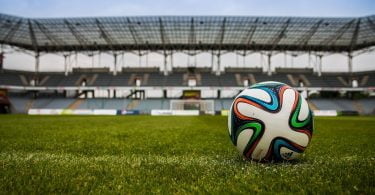So the curtain has now fallen on the 2013 Formula 1 season, and all we fanatical fans are now left to survive on much less high-octane sports until the lights go out in Melbourne next year to start
So the curtain has now fallen on the 2013 Formula 1 season, and all we fanatical fans are now left to survive on much less high-octane sports until the lights go out in Melbourne next year to start the circus all over again. Until that however, I’m having to make do with snooker.
So to cheer myself up, I’ve been looking back over all that happened throughout this year’s season and compiled it in to article for you dear reader, aren’t you lucky!?
What struck me almost immediately is how much of this season I had forgotten. First of all for instance, I could not for the life of me, remember who won the first race of the year in Australia. There were 19 races in total this season which is nothing compared to the 22 scheduled for 2014, so this selective memory problem will be exacerbated even further in 12 months time.
After all 19 races were completed, it was the defending World Champion Sebastian Vettel, who retained the Drivers’ Championship, for the fourth consecutive year. He did so with victory in India and opening an unassailable 115 point gap over nearest challenger, Ferrari’s Fernando Alonso, with 3 races remaining.
By the end of the final race in Brazil, Vettel had broken the record for most consecutive wins in a single season with nine. He also tied the record for consecutive wins, which was set by Alberto Ascari in 1952-1953, and for total wins in a single season with 13, set by Michael Schumacher in 2004.
A record for Vettel as Webber retires
His record tally of 13 wins included a controversial victory at the Malaysian Grand Prix that came after he defied team orders, overtaking teammate Mark Webber late in the race to secure victory. The incident is now infamously known as ‘Multi-21’ after Webber’s angry post-race, pre-podium quizzing of his teammate. Vettel apologised afterwards to the team, although he later refused to apologise for winning and finished the season with 397 points, also a record.
The retiring Webber finished his last Formula 1 season in third place with 199 points. It is the first time since 2008 that the 37 year old Australian has failed to win a race, making the ‘Multi-21’ incident all the more poignant. Without it Vettel would have been unable to break some the records he did by season’s end and Webber possibly could have provided a stronger title challenge in his final year in the sport. Their combined results have allowed Red Bull to clinch their 4th Constructors’ Championship in India before finishing with a total of 596 points.
And the runner up is…
Ferrari’s Fernando Alonso finished as the Championship runner-up with 242 points. The Spaniard won two races, in China and Spain, and scored five second places, to keep him in a strong championship position throughout the season. However, a retirement in Malaysia and poor results by his standards saw him fall far behind Vettel to a position that he could not recover.
Alonso’s teammate Felipe Massa scored 112 points with a single podium finish in Spain. Ferrari lost second place in the Constructors’ Championship to Mercedes, by a mere 6 points.
Speaking of Mercedes, Lewis Hamilton, scored a win in Hungary, four third places and five pole positions in 2013, finished fourth in the drivers’ standings with 189 points in his debut season with the team.
His teammate Nico Rosberg, despite winning the Monaco and British Grand Prix, could only finish sixth in the Driver’s Championship, with retirements as well as a string of bad luck preventing him from having clean races. Mercedes finished as the runner-up to Red Bull in the Constructors’ Championship with 360 points.
Mercedes with the challenge
At mid-season it looked like Mercedes could be serious title challengers, with much brouhaha made about their tyre testing with Pirelli, which was seen as an unfair advantage by Red Bull and Ferrari. After a few seasons spent knocking on the door of the main contenders, Mercedes are now a fully fledged force to be reckoned with in F1.
Refreshing my memory, it was of course Lotus driver Kimi Räikkönen who won the season opening Australian Grand Prix. The Finn also placed second at 6 Grand Prix, but a retirement in Belgium combined with a non-points finish in Italy opened the gap to the championship leader and he eventually finished fifth in the Drivers’ Championship with 183 points despite missing the final two races due to a back surgery.
Teammate Romain Grosjean saw a return of the 2012 controversies, that saw him labelled “a first lap nutcase,” during the first half of the season after being handed a 10-place grid penalty for the Canadian Grand Prix, after crashing into Daniel Ricciardo at Monaco, as well as a 20-second time penalty in Hungary for a collision with Jenson Button. However, the Frenchman found great form to score three consecutive podium finishes and equaled his best ever result in the United States with second place. Poor showings at a number of race weekends however saw Lotus fall to fourth in the Constructors’ Championship with 315 points, 39 adrift of Ferrari.
After finishing the 2012 season with two wins in the final two races, McLaren has openly admitted to a difficult 2013 campaign. Jenson Button finished ninth overall, whilst teammate Sergio Pérez ended up twelfth. The team ended the season in fifth place in the Constructors’ Championship, with a best result of fourth achieved by Button in Brazil. It is the first time since 1980 that the team did not score a podium.
There was little to shout about among the lesser ranked teams, however, having endured a difficult first half of the season in his Sauber, Nico Hülkenberg showed impressive form in Italy, qualifying third and finishing fifth in the race, in Korea, where he started seventh and fought off Hamilton and Alonso for fourth, as well as in the United States, where he qualified fourth and finished sixth
I think the root of my forgetfulness of this season’s events is defined by the path that this year’s racing took. It was very much a season of 2 halves, with the British Grand Prix at Silverstone providing the turning point. Up until then, the season was wide open. There had been 4 different winners, all in different cars in the first 7 races. But afterwards, Vettel won every remaining Grand Prix bar one.
The reason for the change?
Tyres.
Tyre supplier Pirelli faced criticism early in the season due to tyre wear, with some claiming tyre management had become too important to race strategy. Tyre issues dominated headlines at the British Grand Prix when several drivers suffered explosive punctures during the race. Amid safety concerns, Pirelli received permission to introduce an entirely new specification of tyre in time for the Hungarian Grand Prix. The FIA also imposed restrictions of their own, banning the teams from swapping the left- and right-side tyres around, a practice that had been employed to extend the lifespan of the tyres. Ultimately, Red Bull were the only team to fully adapt to the tyre alterations and they duly walked to both the Driver’s and Constructor’s titles. It left many fans feeling unsatisfied and underwhelmed by the quality of racing in the latter stages of the season.
Even Red Bull’s design guru Adrian Newey says the second half of 2013 was “slightly boring” given his team’s dominant showing. It made for a poor end to the season as Vettel’s wins were largely unchallenged, a very different story to the first half of the campaign.
“I must admit in August it all seemed quite tight – I don’t know what happened afterward,” Newey told Autosport as Red Bull’s RB9 won Racing Car of the Year. “We made the second half of the year slightly boring, but go back to the start of the year and it’s been a magic time.
So there we have it, the 2013 Formula 1 season. It finished with minimal fuss and customary Red Bull dominance, but with drastic regulation changes due for next season and numerous other storylines to follow, we could see a very different sport in 2014. It can’t come quickly enough.
What do you think will happen next season? Give us your predictions in the comments section below.
Image: samarvid








